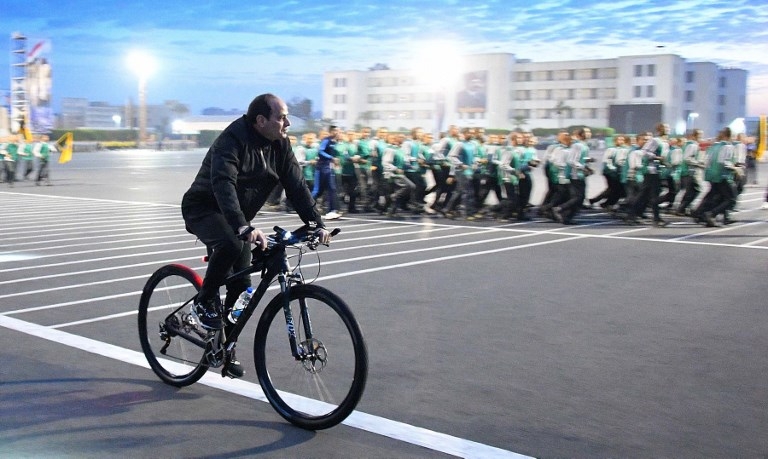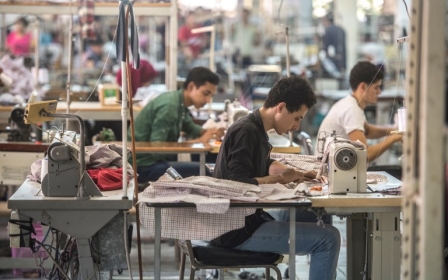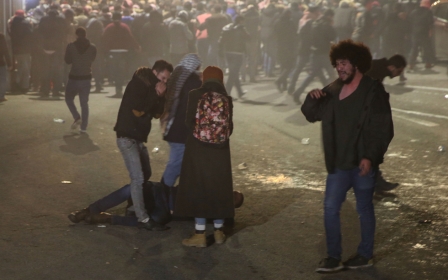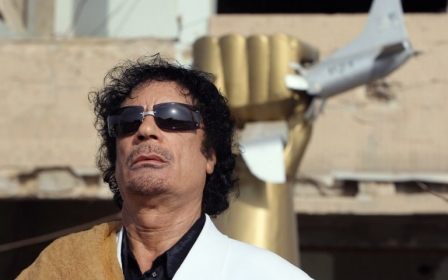Arabic press review: Eat less and run more, Sisi tells Egyptians

The Sisi diet
A couple of years ago, he called for Egyptians to cut down on what they eat to save money.
Now Egyptian President Abdel Fattah al-Sisi has renewed his call, but this time, he's asking Egyptians to reduce their consumption in order to maintain their health, London-based newspaper al-Quds al-Arabi reports.
In a speech on Saturday, Sisi said that three-fourths of Egyptians are currently obese and overweight, and called on universities and schools to organise sports programmes and walking and running races.
"Media outlets should invite guests who care about their health and their weight. Those who appear in media programmes and on television should abide by this," he added.
Sisi's remarks sparked a wave of controversy and ridicule on social media.
"We are about to pass through a police checkpoint. Everyone suck in your stomach," an Egyptian posted on Facebook.
"Whoever loves us and wants us to lose weight for our health should include a gym membership on the food ration cards," wrote one.
Another wrote sarcastically: "Tyranny causes obesity, because it leads to depression that works up human appetite.
"Tyranny leads to obesity because it leads to poverty and malnutrition, which is one of the causes of obesity, increasing starch and decreasing proteins."
Half of Syrian refugees in Jordan won't return
A new opinion poll shows that around 50 percent of Syrian refugees living in Jordan refuse to return home, according to Jordanian newspaper al-Ghad.
According to the poll, 33 percent of Syrian refugees confirmed that they would never return to Syria, while another 24 percent said their return is "highly improbable".
Most of the Syrian surveyed linked their inability to return home to "security chaos and instability” in Syria.
Only 14 percent of the Syrian polled said they were "very determined to return home,” with 29 percent indicating they "might return".
Jordan has about 1.3 million Syrian refugees, only half of whom are registered as refugees with the United Nations High Commissioner for Refugees (UNHCR).
The October poll was conducted by the Amman-based NAMA Centre for Strategic Consultancy in partnership with the Konrad Adenauer Foundation.
According to the results of the same poll, Syrian refugees perceive the situation in Jordan as "positive", with 78 percent saying Jordan is the most hospitable country which has received refugees.
Sixty-seven percent of displaced Syrians said they feel very welcome in the country, while 92 percent said living as a refugee in an Arab country like Jordan is an advantage because customs and traditions are similar.
Dear Lebanon: Let Hannibal go
Syria is pressuring Lebanese authorities to release Hannibal Gaddafi, the fourth son of late Libyan leader Muammar Gaddafi, reports Saudi newspaper Asharq al-Awsat.
Gaddafi, 43, has been in the custody of the Lebanese security services since 10 December 2015, charged with hiding details in the case of Imam Musa al-Sadr.
Lebanese authorities have long believed his father was responsible for the disappearance of the Shia religious leader and Amal movement founder during a visit to Libya in August 1978.
Sources told Asharq al-Awsat that the Syrian government recently sent Lebanese authorities a stern letter saying that the detention of Hannibal Gaddafi was no longer justifiable, especially given that he has said he knows nothing about Sadr's disappearance.
Paris for Christmas? Non merci
Algerians who were planning to travel to France for Christmas holidays are headed elsewhere, scared off by the yellow vest protests, according to a report in Algerian newspaper Echourouk el-Yawmi.
Alternative hot spots include Turkey, Tunisia and Morocco, travel agencies told the paper.
And while prices to travel to Paris have dropped as a result, one agency owner said New Year's Eve on the Champs-Elysée is proving to be a tough sell.
*Arabic press review is a digest of reports that are not independently verified as accurate by Middle East Eye.
New MEE newsletter: Jerusalem Dispatch
Sign up to get the latest insights and analysis on Israel-Palestine, alongside Turkey Unpacked and other MEE newsletters
Middle East Eye delivers independent and unrivalled coverage and analysis of the Middle East, North Africa and beyond. To learn more about republishing this content and the associated fees, please fill out this form. More about MEE can be found here.




